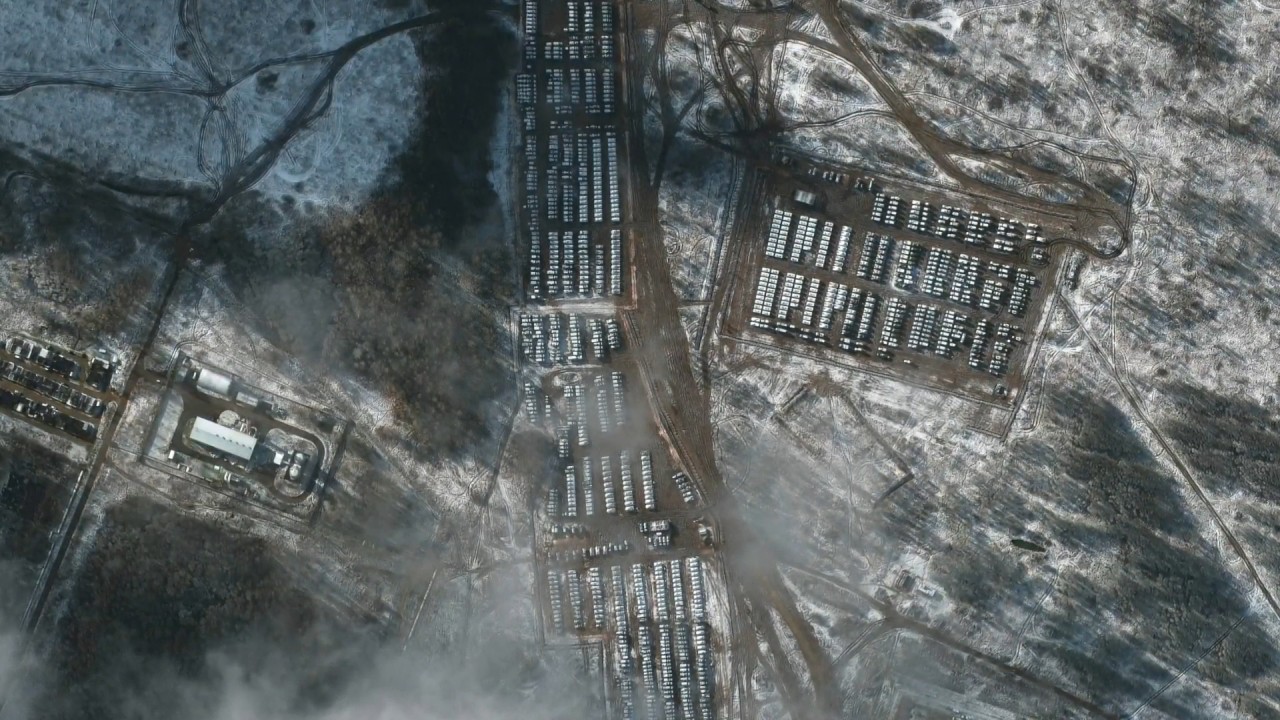
Russia says Ukraine could turn into rerun of Cuban missile crisis
- Biden phones Ukraine president and nine eastern European Nato allies as he seeks to ‘bring down the temperature’
- Germany and UK warn Putin of ‘consequences’ if Moscow invades
Russia said on Thursday that escalating tensions over Ukraine could lead to a repeat of the Cuban missile crisis, when the world stood on the brink of nuclear war.
Deputy Foreign Minister Sergei Ryabkov made the comment when asked by a reporter if the current situation could turn into something resembling the 1962 Cold War stand-off between the United States and the Soviet Union.
“You know, it really could come to that,” Interfax news agency quoted him as saying. “If things continue as they are, it is entirely possible by the logic of events to suddenly wake up and see yourself in something similar.”
The Cuban crisis was triggered by the stationing of Soviet nuclear missiles on the Caribbean island and prompted the United States to impose a naval blockade to prevent Moscow shipping in more.
Moscow’s stated fear in Ukraine, which seeks to join Nato, is that the alliance will deploy missiles there and target them against Russia. Nato says it is a defensive alliance and such concerns are unwarranted.
Ukraine says it fears an invasion by tens of thousands of Russian troops gathered near its borders, while Moscow says its posture is purely defensive.
The Cuban missile crisis was defused when Soviet leader Nikita Khrushchev agreed to dismantle and remove the nuclear weapons in return for a pledge by US President John F. Kennedy not to reinvade the Communist island.
Washington also secretly agreed to remove its nuclear missiles from Turkey, in a part of the deal that was not revealed until decades later.
On Thursday, Biden phoned Ukraine’s President Volodymyr Zelensky ahead of calls to nine eastern European Nato allies, promising support if Russia attacks Ukraine, as well as severe economic sanctions against Moscow.
Zelensky issued a statement thanking Biden for his “strong support” in a phone call lasting about an hour and a half.
The White House said Biden “reaffirmed the United States’ unwavering commitment to Ukraine’s sovereignty and territorial integrity”. He also pushed for reinvigorated diplomacy, including the stalled peace talks between Ukraine and Russia.
“Within the next couple days, we’re obviously going to continue talking with our European partners, we’re going to continue talking with our Russian partners and finding a way forward,” a senior administration official told reporters.
After speaking to Zelensky, Biden called the leaders of Bulgaria, the Czech Republic, Estonia, Hungary, Latvia, Lithuania, Poland, Romania and Slovakia – all of which, unlike Ukraine, have joined Nato in the wake of the 1991 Soviet collapse.
Biden reassured the allies nothing would be agreed with Russia about the region behind the backs of its countries, Lithuanian president’s adviser Asta Skaisgiryte told reporters.
“He said additional reassurance elements are possible in these countries, and additional military capabilities”, without naming possible locations, Skaisgiryte added.

Among them, the new German chancellor, Olaf Scholz, warned of “consequences” for the Nord Stream 2 pipeline, a controversial Russian project to deliver natural gas to Germany.
French President Emmanuel Macron said he plans to hold a virtual meeting with the Russian leader next week to support efforts to de-escalate tensions around Ukraine.
Britain’s Defence Secretary Ben Wallace on Thursday called on Putin to pull back from the brink over Ukraine and warned that Russia would face long-term severe consequences if its forces invaded its neighbour.
Reuters and Agence France-Presse

